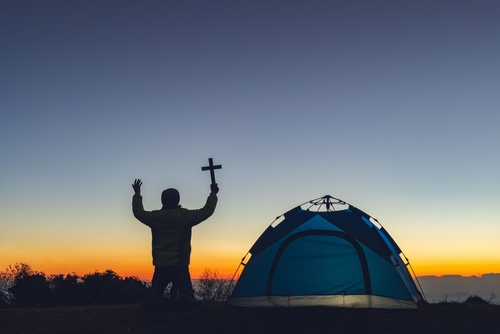
The city of Des Plaines is facing serious allegations of intentionally flooding a historic Christian campground. The camp, which has been a beacon of faith since 1860, is now at risk of permanent closure due to the city’s alleged actions.
For over a decade and a half, the campground has endured repeated flooding incidents, far surpassing anything it had previously experienced in its long history along the banks of the Des Plaines River.
Initially believed to be natural disasters, it has now come to light these floods may have been orchestrated by the city through its flood control infrastructure.
Intentional or not, the Christian camp got flooded and the city is both glad and not helping out…https://t.co/ioSpzqkWkX
— Larry Thompson (@LarryThomp38632) September 25, 2023
The floods have wreaked havoc on the campground, causing significant damage to its historic structures. The city’s refusal to suppress prayer and worship on the property led to a falling out, according to the lawsuit.
The city is accused of retaliating against the campground with the aim of shutting it down permanently under the guise of enforcement action based on flood damage – damage that the city itself allegedly caused.
The campground, listed on the National Register of Historic Places in 2005, asserts that its original charter provides protections, including the right to use and adorn its land as it sees fit.
However, the city’s flood control project built a levee around the campground, leaving it unprotected while benefiting other properties. This project subsequently moved the campground into a regulatory floodway.
The lawsuit, filed in Cook County Circuit Court by lawyers from Liberty Institute and Kirkland & Ellis, is a response to the city’s agenda to force the camp to renovate or demolish 50 structures on its land.
The camp officials argue that the city’s real intention is to ruin the religious organization because it did not capitulate to city demands during a revival event held three years ago amid the COVID pandemic.
JUST IN: Biden Trying To Deport Persecuted Christian Family While Thousands Of Illegals Flood Country Dailyhttps://t.co/WdV14SeQv1
— FFT1776™ Fight for Truth & Justice (@FFT1776) September 25, 2023
The camp further alleges that the city’s Levee 50 operation directed floodwaters toward the campground, causing additional flooding and harm to its 35 acres and some of its buildings.
The camp, run by a board of trustees, sought help from Liberty, known for its work in protecting religious liberties. They argue the First Amendment and state provisions regarding religious freedom protect them from unfettered intrusion by the government.
The relationship between the city and the campground soured after a revival event held during the height of the pandemic in 2020.
The city’s tone changed when some attendees did not wear masks, despite evidence suggesting their limited effectiveness. The camp claims this hostility resulted in citations for various structures and city demands to dictate what happens at the camp.
This case is more than just a dispute over flood damage; it’s a battle for religious freedom. It’s a reminder that our rights, enshrined in the Constitution, must be defended against any form of government overreach.













